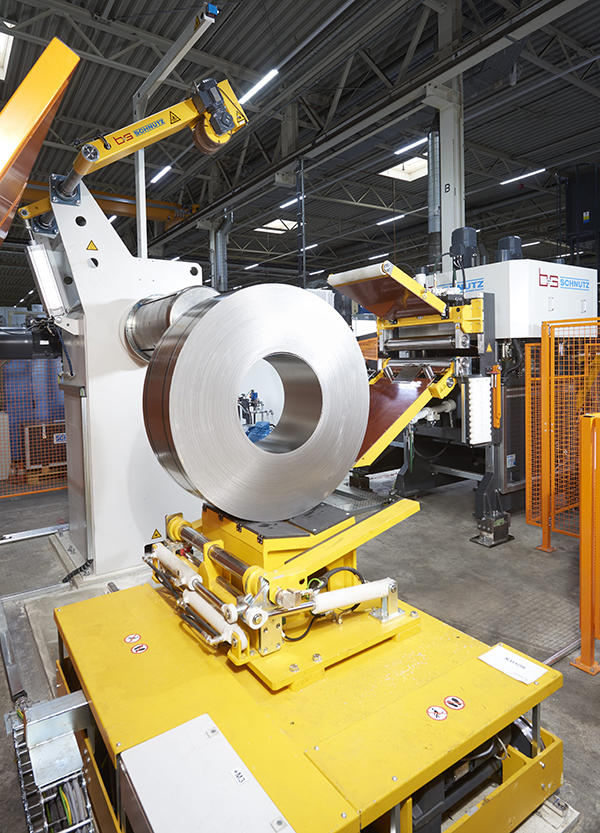In the automotive industry, lightweight construction is in greater demand than ever before.

However, car seats and their fastening elements must withstand the enormous forces exerted on vehicles involved in accidents. High-strength materials are used to ensure high resilience, but with a lower weight.
The machines of numerous automotive suppliers used up to now are often not designed for processing these materials. As a result, automotive supplier Adient has taken appropriate upgrade measures: the press lines at its Solingen works were recently extended with the addition of three strip-feeding lines featuring high-performance levellers from Schnutz GmbH. The new machines enable feeding and easy processing of the special materials with optimum flatness being achieved.
“Prior to awarding the contracts to Schnutz, Adient carried out extensive tests at various suppliers,” says Dr Lutz-Stefan Henrich, managing director of Schnutz GmbH. “The aim was to ascertain whether the machines were suitable for the complex and multi-stage forming of high-strength steel.”
At the technical centre in Siegen, Germany, Schnutz convinced the automotive supplier of the quality of its machines in joint levelling tests. For this reason, Adient decided to extend its machinery for processing high-strength materials with the addition of three strip feeding lines, including a high-performance leveller from Schnutz.
At the pressing plant of Adient, seat rails are manufactured on several lines.
“The high-strength material used requires special treatment in order to obtain the required flatness with optimal residual stress in the strip material,” says Henrich. “Only when the geometry of the leveller matches the particular product can the best results be achieved.”
That reason is why Schnutz uses simulation programs to analyse the working processes and plastic forming behaviour of the materials used in order to modify the machines to suit customer-specific requirements.
For further information www.schnutz.com















